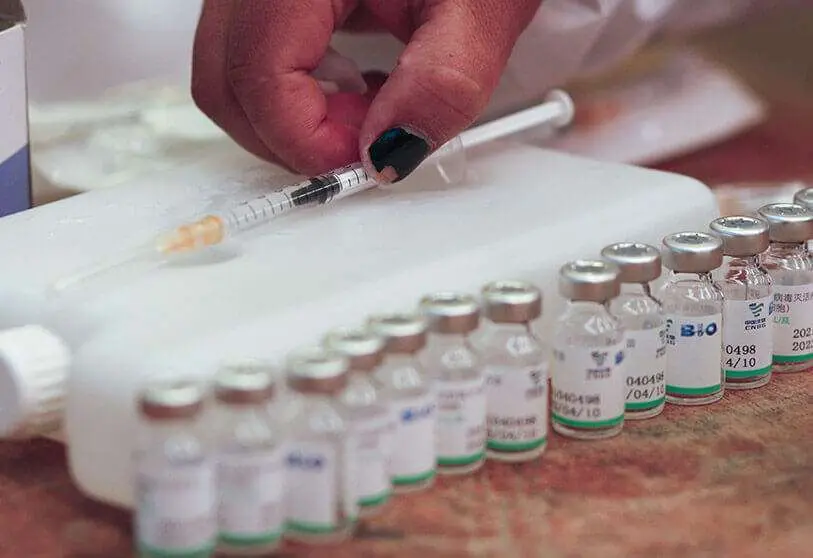The vaccine paradox

The vaccine war has moved out of the laboratories and into the states. The global pandemic is also a revelation of political fractures. What we are experiencing now is reminiscent of a time when two blocs fought each other, the United States on the one hand and the USSR on the other. Today, we have China, which advocates a socialist model tailored to Beijing's needs, and the Western bloc, with increasingly liberal policies. While the Middle Kingdom may not be able to extend its power in Europe, it is gaining ground in Asia, Africa and Latin America.
One of the policies that have been put in place to curb China's appetites and appetites is the embargo on its products and, for the moment, it is the vaccine that is being debated. Tightening controls on vaccine exports is, above all, a matter of political choice. Europe's bias could not be clearer. Chinese vaccines are not recognised, despite the fact that the WHO has authorised the products of the Sinopharm and, more recently, Sinovac laboratories, as well as the proven efficacy in several countries and a controlled epidemic in China, the first epicentre of the global tragedy. Words also carry weight. The term "Russian" or "Chinese vaccine" when referring to Sputnik, Sinopharm or Sinovac is in itself revealing of the crisis.
The lack of data and transparency in relation to these vaccines is often cited, even though the deaths caused by AstraZeneca's or Johnson & Johnson's side effects are still remembered. This is the paradox of vaccines.
Currently, the European Medicines Agency only authorises four vaccines, those developed by BioNTech and Pfizer, Moderna, AstraZeneca and Johnson & Johnson. However, the EU leaves it up to its member states to recognise the other vaccines, but consensus is far from being reached. First, there is France, which has been the only country so far to make a definitive decision on the issue. The Secretary of State for European Affairs, Clément Beaune, has declared that his country will not recognise the protection of Russian or Chinese vaccines, adding another stone to the edifice of the obstacle to freedom of movement. This decision is important and has consequences for millions of people around the world who have used this protection. So far, Sinopharm is present in 45 countries and Sputnik in 40, from Asia to Latin America and Africa. Is France ready to give up the two million Chinese tourists who visit the country every year? But at the same time, Macron's government is also preventing the entry of many undesirable people from Third World countries.
In contrast to this stance, Spain has decided to open its borders to vaccinated people regardless of their origin... Everything is far from harmonised within Europe, whose economic situations and needs are different.
Countries such as Hungary and more recently Slovakia are vaccinating their citizens with Russian and even Chinese vaccines. Hungary is undeterred and denounces the exclusion: "It is the responsibility of the Hungarian government to resolve this situation. This is a trap set for Hungarians, the authorities must resolve it," said Budapest.
Scepticism about China's growing superpower is increasingly entrenched despite reassuring scientific publications and large-scale tests. According to AFP, Turkey reported that Sinovac's vaccine was 91.25% effective, while Chile reported a coverage rate of 78% and Indonesia and Brazil 65.3% and 50.38%, respectively.
The variable-geometry policy of suspicion towards vaccines implemented by states is also contributing to increasing public distrust of laboratories, and more and more people feel caught up in a war with geopolitical overtones.
One of the new facts of our time is that we have come to oppose democracy to science. Whose fault is that? A little bit everyone probably. But in addition to conspiracy theories and disinformation networks, Big Pharma has played an important role in this general distrust. The vaccine war has been declared and, as in any war, there is always a winner and a loser and in these cases it is the people who pay the price.

